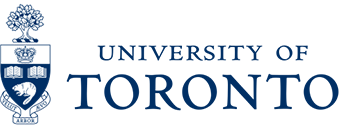Description of Training
The Fellowship consists of 2 years, with one year primarily clinically-oriented, and a second year primarily research-oriented. With the depth of exposure provided by this fellowship, graduates will have the necessary clinical, surgical, and research skills to pursue an academic career in advanced urologic robotics, laparoscopy and endourology.
The Fellowship is internationally accredited by the Endourological Society. Applications are processed through the Endourological Society as part of a match process (see www.endourology.org for details).
Duration of Training
Fellows are required to have completed a recognized 5 or 6 year Urology Residency with the appropriate certification.
Clinical Volume
Approximate number of cases per year:
Percutaneous procedures – 100
Ureteroscopic procedures – 250
Shock wave lithotripsy – 50-100 (out of 2500 treatments per year)
Laparoscopic procedures – 100-120
Robotic procedures – 50
Laboratory Facilities and Research Supervision
Clinical databases are available to allow prospective outcome studies on 2,500 shockwave patients per year, as well as all patients treated endourologically. Both basic science bench- space and a fully equipped animal vivarium are available. A Ph.D. is available to supervise specific projects, in areas ranging from biomaterials, infection, and metabolic stone disease. Supervision is also available for those wishing to pursue a M.Sc. in clinical epidemiology, and fellows are expected to participate in ongoing clinical trials, as well as in the development of new trials. Fellows are expected to become involved in a variety of ongoing research projects and clinical trials, submit abstracts to meetings for presentation, and prepare manuscripts for publication.
Clinical Responsibilities
The Fellow will participate in a wide range of endourologic and laparoscopic surgical procedures and round on these patients, with the senior resident, in the post-operative period. He or she will be involved with both the surgical and medical assessment of patients through the clinics at The St. Michael’s Hospital Kidney Stone Centre. Fellows are expected to become involved in the teaching and training of urology residents and medical students, and will have some at home on-call obligations. Interested Residents are encouraged to fill in and forward an application to Dr. Kenneth Pace (kenneth.pace@utoronto.ca).
https://www.endourology.org/fellowships/clinical/details/university-of-toronto-division-of-urology
Program Director
Kenneth Pace, MD, MSc, FRCSC
University of Toronto, Division of Urology
St. Michael’s Hospital
61 Queen St. E., #9106
Toronto, Ontario M5C 2T2
E-mail: kenneth.pace@utoronto.ca
Previous Graduates of the Fellowship Program
1998 – Dr. Peter Incze
1999 – Dr. Michael Weir, weirmj@hotmail.com
2001 – Dr. Kenneth Pace, kenneth.pace@utoronto.ca
2002 – Dr. Solieman Bilgasem
2003 – Dr. Peter Cybulski, peterbillie@sympatico.ca
2004 – Dr. Joel Dagnone, joeldagnone@hotmail.com
2005 – Dr. Brian Blew, bblew@ottawahospital.on.ca
2006 – Dr. Luke Fazio, lukefazio@hotmail.com
2007 – Dr. Alexandra Perks, alixperks@hotmail.com
2008 – Dr. Trevor Schuler, ts9@ualberta.ca
2009 – Ms. Emma Bromwich, emma.bromwich@virgin.net
2010 – Dr. Andrew Ray, a_andrew_ray@yahoo.ca
2011 – Dr. Joshua Wiesenthal, joshw@rogers.com
2013 – Dr. Michael Ordon, michael.ordon@unityhealth.to
2014 – Dr. Kirsten Foell
2014 – Dr. Andrea Lantz, Andrea.lantz@gmail.com
2015 – Dr. Steph Tam, Steph.tam@utoronto.ca
2016 – Dr. Keith Barrett, Keithbarrett1@gmail.com
2016 – Dr. Tarek Alzahrani, tarekzahi@hotmail.com
2017 – Dr. Abdulaziz Althunayan, dr.althunayan@gmail.com
2017 – Dr. Robert Sowerby
2017 – Dr. Monica Farcas, Monica.farcas@unityhealth.to
2018 – Dr. Tad Kroczak, Tkroczak2@sbgh.mb.ca
2019 – Dr. Luke Reynolds
2020 – Dr. Thomas Canil
2020 – Dr. Melody Djuimo
2021 – Dr. Michael Dilena
2021 – Dr. Justin Kwong
Save or Send This Page


